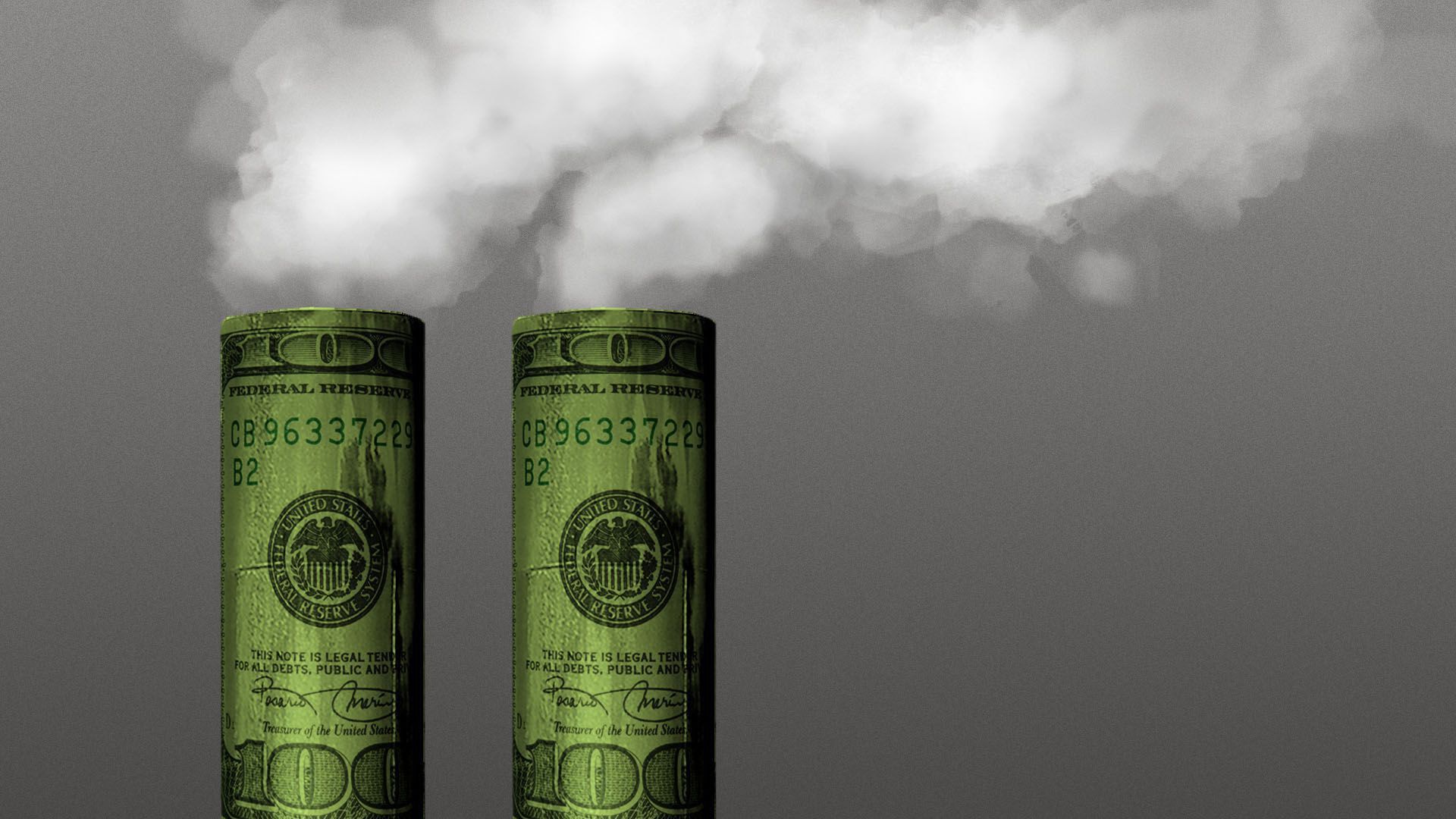Fossil fuels have upper hand in G20 coronavirus stimulus plans so far
Add Axios as your preferred source to
see more of our stories on Google.

Illustration: Sarah Grillo/Axios
G20 governments' pandemic recovery packages are steering much more funding to fossil fuel industries and energy-intensive sectors like airlines than "clean" energy, an Energy Policy Tracker project from several think tanks and activist groups shows.
Why it matters: International agencies like the United Nations and International Monetary Fund have been urging governments to prioritize climate-friendly energy in economic recovery packages.
By the numbers: According to the new database, thus far G20 governments' commitments provide...
- $151 billion for policies "supporting production or consumption of fossil fuels."
- Of that amount, only $30 billion comes with climate targets or new emissions requirements.
- Meanwhile, $89 billion has been steered toward "clean" sectors like energy efficiency, solar and wind.
- There's another $28 billion in the "other energy" category that doesn't fall into their "fossil" or "clean" taxonomy, such as " biofuels and hydrogen of unspecified origin."
Yes, but: Quartz points out an important caveat.
- "This analysis only counts funding that has been officially committed. Stimulus funds that are still in discussion, like the European Union’s $850 billion green recovery plan, are not included," the piece notes.
- The groups plan to update the tracking tool on a weekly basis as more recovery spending is approved.
The big picture: “National and subnational jurisdictions that heavily subsidized the production and consumption of fossil fuels in previous years have once again thrown lifelines to oil, gas, coal, and fossil fuel-powered electricity," said Ivetta Gerasimchuk of the International Institute for Sustainable Development.
- Her group launched the project with organizations including the Institute for Global Environmental Strategies, the activist group Oil Change International, the Overseas Development Institute and others.
